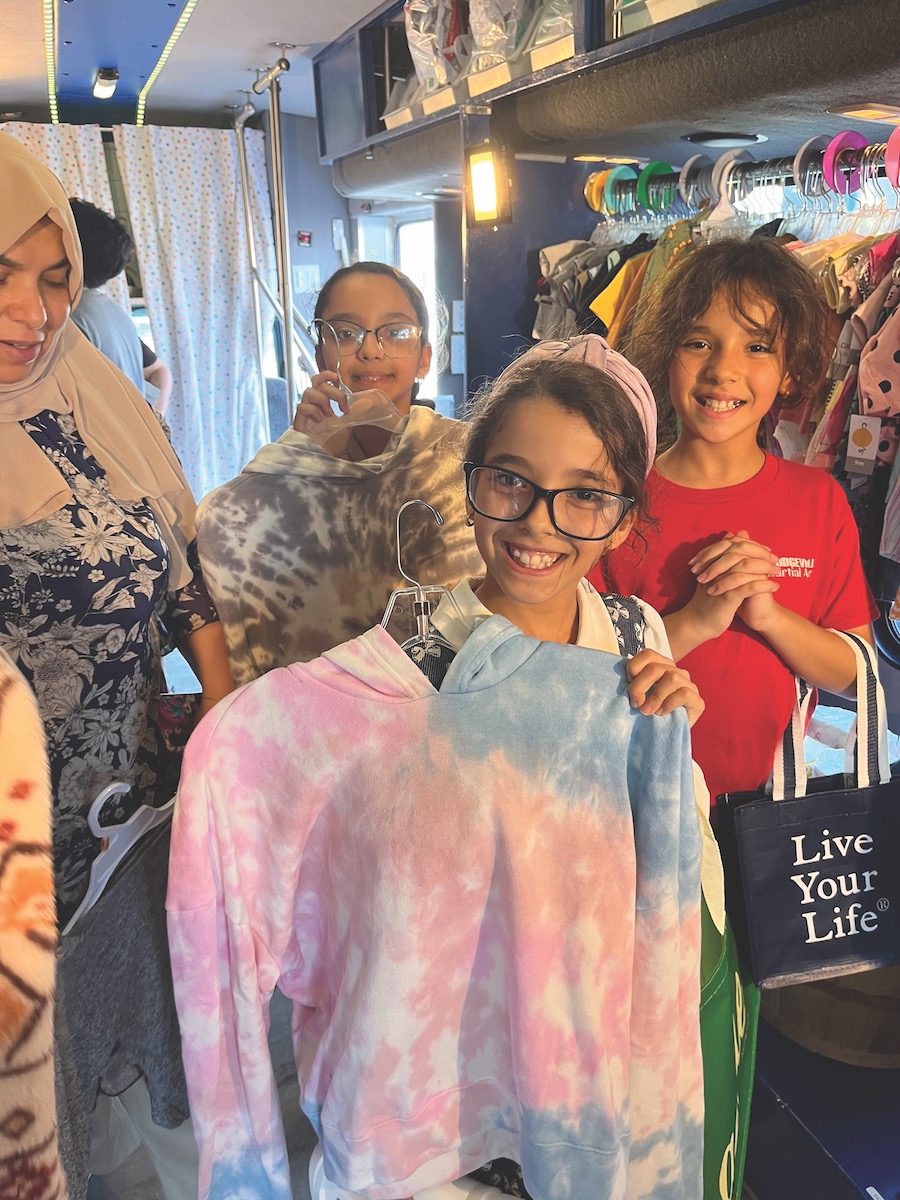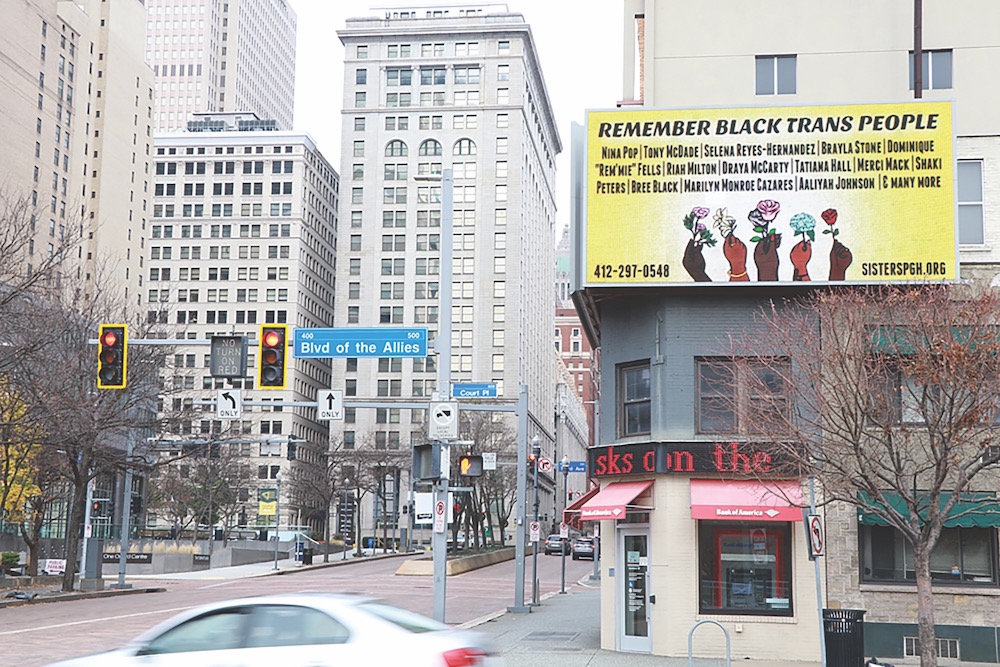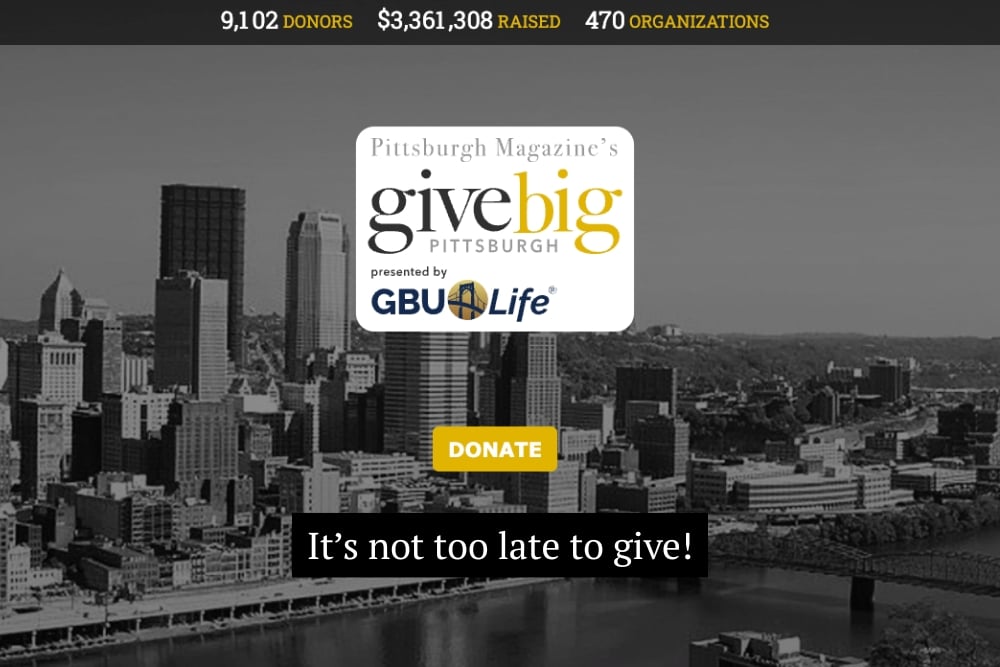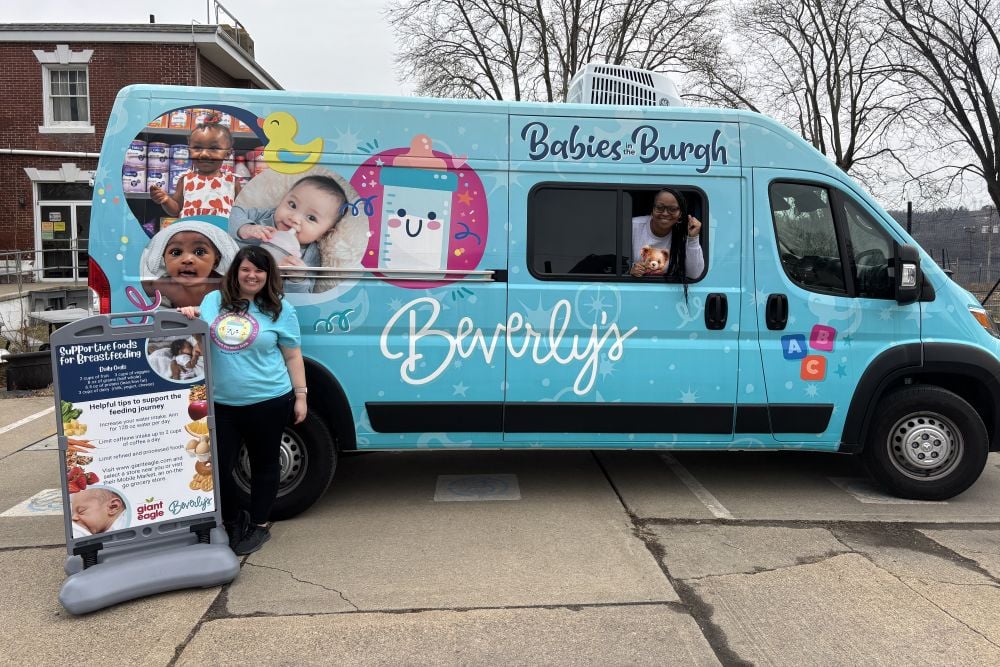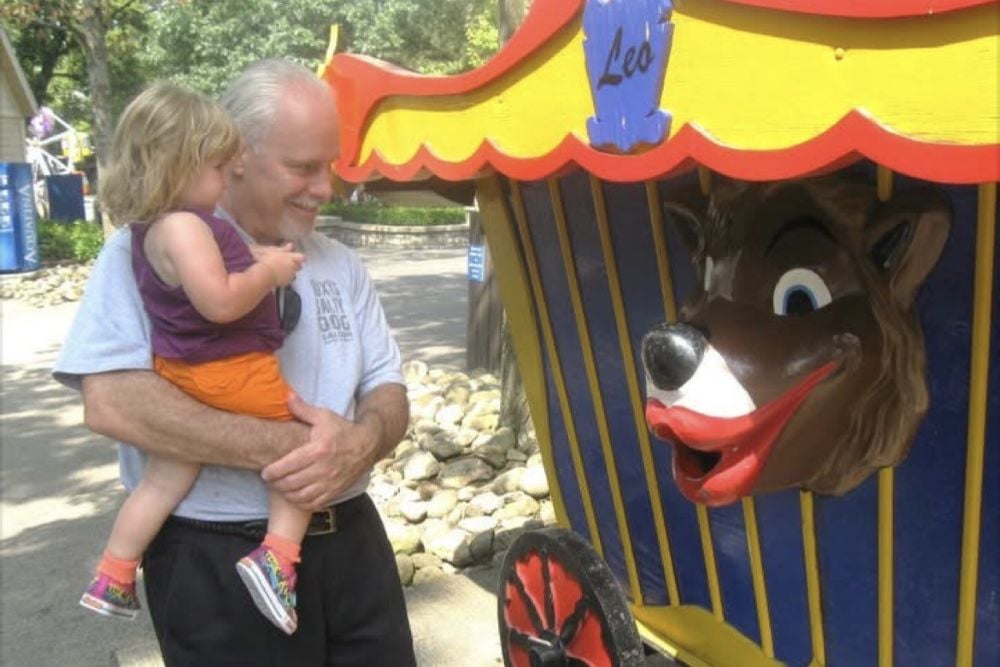3 Nonprofits Serving Different Communities in Pittsburgh
If there’s a need in the Steel City, rest assured there’s a nonprofit to address it.
For Nursing Mothers
Beverly’s PGH

TWO MOBILE UNITS, BABIES IN THE BURGH AND BASICS BOUTIQUE, HELP EXPAND THE ORGANIZATION’S REACH. | PHOTO COURTESY OF BEVERLY’S PGH
As Megs Yunn leads me through the headquarters of Beverly’s PGH in North Huntingdon, we are dwarfed by towering metal shelves lined with toys, diapers, clothing, books and other childhood essentials.
It’s the most adorable and welcoming warehouse in the world, complete with an event space and cozy lactation lounge. In the parking lot, Pennsylvania’s first-ever mobile infant formula unit is stocked and ready to roll. You can register to visit.
Yunn — founder, executive director and mother of four — eyes a hillside by the 10,000-square-foot building. She’s already thinking about another expansion. This organization is her other baby, after all, and it’s growing up fast.
In 2011, Yunn met a girl named Beverly who said no one had ever thrown her a birthday party or even baked her a cake. That heartbreaking conversation launched Beverly’s Birthdays, an organization that partnered with social service agencies and low-income school districts to arrange birthday bashes for homeless kids and families in need.
The nonprofit, which was rebranded as Beverly’s PGH in 2024, continues to celebrate birthdays as it advocates for the youngest members of the community. In addition, by the end of August 2025, the organization reached its fundraising goal of $100,000 for the Back to Basics with Bev’s Campaign, enabling families to “shop” for clothing, essentials and more on the roving Basics Boutique truck.
In 2022, Beverly’s launched the Greater Pittsburgh Infant Formula Bank, a bridge-based support service that has seven brick-and-mortar locations throughout Allegheny and Westmoreland counties. Formula, Yunn says, isn’t an item typically carried by the organization’s food pantry partners. The cost for one standard can is $27. It’s covered by the Supplemental Nutrition Assistance Program (SNAP) and the Special Supplemental Nutrition Program for Women, Infants, and Children (WIC).
Beverly’s satellite banks are stocked with brands such as Similac, Enfamil and Gerber in powder, liquid and concentrate forms. Supplies are purchased directly from manufacturers and retailers. Donations of new, unopened, unexpired formula can be dropped off at all sites. (If people are looking for a specific type of formula, they should contact the bank before visiting to get a rundown of the current inventory.)
In August 2024, the Babies in the Burgh truck, dubbed “Babs,” hit the road to bring free formula, breastfeeding supplies, clothing and hygiene items to food and transportation deserts across southwestern Pennsylvania. There’s also a lactation consultant on board to answer questions and offer advice to new and expecting moms.
The organization recently started offering advance registration for families planning to visit the mobile unit. A complete schedule and more information is available online or by calling 724-590-5106; to receive free assistance, you must have an active cell phone number that’s able to receive text messages.
The Greater Pittsburgh Infant Formula Bank follows the client and child from the date of the child’s first service to their first birthday. A family can visit any of the formula banks, but the child can receive only 12 standard cans of infant formula or the liquid equivalent per year and no more than one standard can per visit. (A visit is defined as one service within 24 hours.)
So far, Babs has helped to feed more than 3,500 babies.
With its colorful design and built-in service window, Babs looks more like an ice cream truck than a rolling service center. Since every woman’s birth plan is unique, Yunn wanted the vehicle to exude acceptance and hope.
I wish I would’ve known Darla Sherlock, a 2024 Pittsburgh Magazine 40 Under 40 honoree, when I was a stressed new mom struggling to put some weight on a hungry 5-pound baby. Sherlock, Beverly PGH’s senior director of programming, is a certified doula and a board member of Postpartum Pittsburgh, a nonprofit that supports postpartum mental health.
In March, the organization conducted a survey that included 539 moms; 38% felt judged for how they chose to feed their baby.
“That is too many to feel that way,” Sherlock says. “We ask, ‘How can we support you with your feeding journey so you can make an informed choice and pivot if you need to?’ If we can create a space to support families and recognize that, at the end of the day, your mental health is what matters most.”
Beverly’s PGH helps people navigate the insurance system and, through community connections, find additional resources. As an organization, Beverly PGH’s was built to grow right along with baby’s needs, from prenatal care to birthday celebrations.
“We’ve carved out a place where we fit in the large hug that is maternal health care,” Yunn says. “There’s a never-ending need. People who have benefitted from the program are giving back.”
— Kristy Graver
For Career Prep
CMU Computer Science Academy
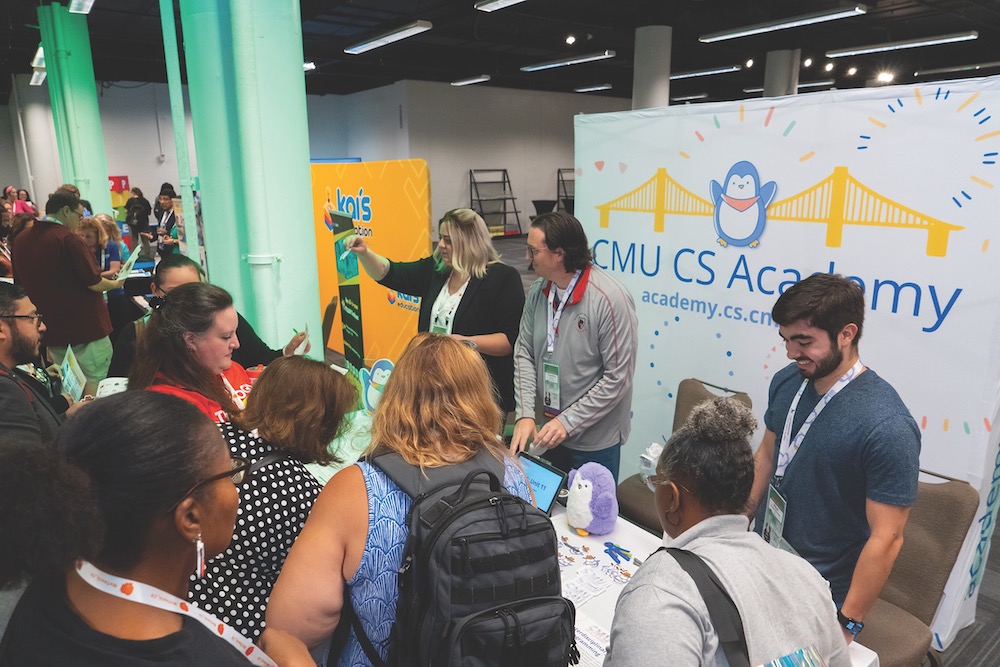
CS ACADEMY PROGRAM MANAGERS TIM BARNES AND SOFIA DE JESUS TALK TO STUDENTS. | PHOTO COURTESY OF CARNEGIE MELLON UNIVERSITY
After meeting with Pittsburgh educators in 2017, Carnegie Mellon University professor David Kosbie was inspired to find a way to build a computer science curriculum with students around the world. He brought in colleague Mark Stehlik to help lead the effort.
With hard work — and the vital help of eager CMU students — the nonprofit CMU Computer Science Academy was born six months later, to serve as a pathway to college-level computer science in high school.
When the program first launched, CMU’s then-dean of computer science, Andrew Moore, challenged Kosbie and Stehlik with what they thought would be a seemingly impossible goal: enrolling 1 million students in the program.
“We embraced it because we wanted to make that difference,” Stehlik says. “But we started with 14 schools and 400 students — and that’s a long way from a million.”
Now, Kosbie and Stehlik are well on their way to that goal, as the program this past summer reached the benchmark of half a million students in 77,000 classrooms across 50 states and 66 countries. The best part? It’s all free.
“We didn’t have a lot of resources to make it to 1,000 consumers, let alone a million,” Stehlik says. “But because the teachers who we started with were so effusively positive about what they were using, word of mouth really spread virally … We owe it to the teachers to continue to broaden that web of influence.”
Kosbie adds that the program’s success also hinges on the dedication of CMU’s students.
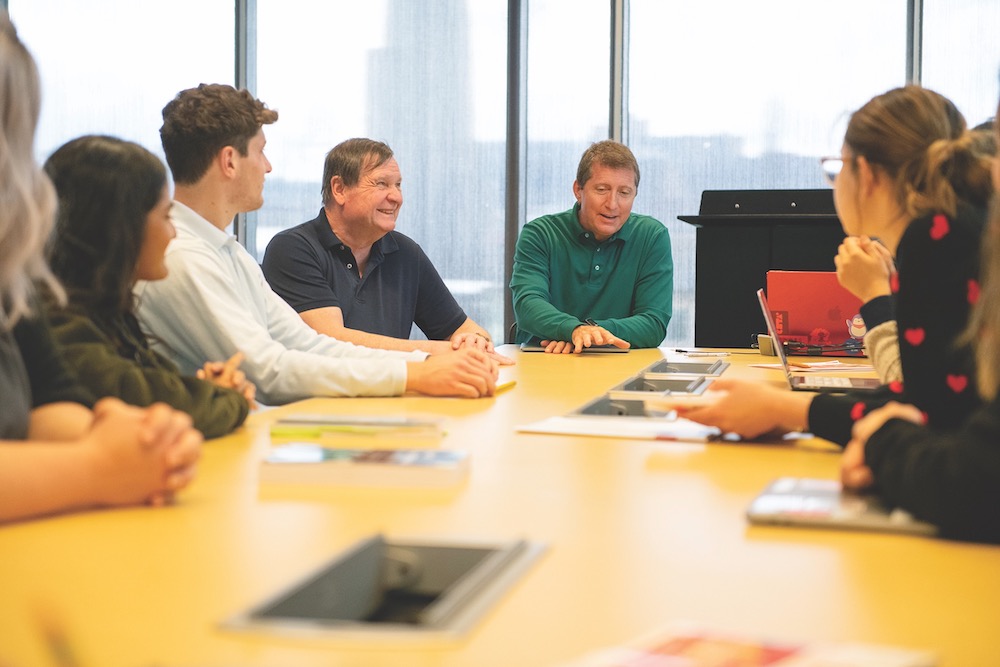
CS ACADEMY FOUNDERS MARK STEHLIK (IN THE NAVY BLUE SHIRT) AND DAVID KOSBIE (IN THE GREEN SHIRT). | PHOTO COURTESY OF CARNEGIE MELLON UNIVERSITY
“The way that we compete with companies that have millions of dollars to spend when we don’t is the CMU students,” Kosbie says. “They are our secret sauce. I am mystified at how full-time undergraduate students have the time to pour what they do into this project, but they just bring it.”
Kosbie and Stehlik created the program under the assumption that they would be reaching a range of classrooms, including those with limited existing computer science knowledge and few resources to support their learning.
“We are going to bridge equity divides in computer science,” Kosbie says. “We’re going to make sure that we are going to reach the people who right now don’t have the opportunities.”
Early on in their program, they decided to work with a rural school in the Central African nation of Rwanda, through a connection with a CMU student. Despite the challenge of working with a much more remote school, Stehlik and Kosbie used this as a chance to make their program as accessible as possible.
Stehlik and Kosbie stress that their program is not an online course that students can complete on their own. Instead, the CMU Computer Science Academy — often referred to in shorthand as CS Academy — was designed with teachers centered in the curriculum. Dawn McCullough, a teacher at South Fayette High School, has been using the academy in her classroom since the program first piloted.
“The beauty of CS Academy is it isn’t necessarily for a target kid or target student,” McCullough says. “It hits on every student, whether you’re a heavy coder or somebody that wants to learn about it.”
She explained that while some students and teachers may find coding to be intimidating, it’s not something to be afraid of. She credits South Fayette and CS Academy for helping to show students that coding can be for anyone.
“Everything that we use, everything that we see is powered by code — and knowing how to use it and how it works is really important to moving on with our daily lives,” says Akshath Giridhar, a rising junior who used the academy in McCullough’s class.
As artificial intelligence drives changes in education and computer science over time, Stehlik and Kosbie say they are prepared to update and expand the Computer Science Academy to keep up with the evolving field and to help them eventually meet their goal of reaching 1 million students.
“If we can make it to half a million, well, dang, we can make it a million,” says Kosbie. “And we should because it’s not a numbers game — every one of those students is an opportunity.”
— Kathleen Gianni
For Transgender Individuals
Sisters PGH
After facing the challenging realities of being a young, Black, transgender sex worker in Downtown Pittsburgh, Ciora Thomas decided she needed to create a pathway to real change.Fighting against the lack of existing resources and organizations for transgender individuals, she took matters into her own hands and established SisTers PGH. She started the nonprofit more than 15 years ago, with a focus on providing housing programs to those in need.“I always believe that housing is the first step to someone getting themselves together,” says Thomas, who serves as executive director of SisTers PGH. Individuals who have stable housing are “able to prioritize even finding a job, pulling those pieces together for their lives — mental health, all those things. Having a home base was No. 1, so that’s what the organization started off with.”
SisTers PGH earlier this year launched Monica Roberts Place, a permanent housing program meant to break the housing-insecurity cycle within Black and transgender communities. The name honors Monica Roberts, a pioneering Black trans journalist and activist from Houston who died in 2020. They also introduced Project T, a transitional housing program specifically for Black transgender women and girls experiencing homelessness.
Beyond housing, the nonprofit has expanded to offer mental-health resources, drop-in centers and additional support across the state.
“Essentially, we’re creating a continuum of care within the organization and something that we just didn’t have access to back then,” Thomas says. “Back then, I wouldn’t even have been able to fathom being able to afford a space Downtown, let alone being able to provide all these different services.”
SisTers PGH is gearing up to open their latest center, The Stonewall Inn, at 211 Smithfield St. in the heart of Downtown. It will be part of Emerald City Pittsburgh, a Black-owned co-working space in The Pitt Building.
“This space is going to be an epicenter for trans services, where trans people can come get everything,” Thomas says.
The emergency drop-in center will offer showers, food, rest and additional resources.
As SisTers PGH continues to expand, Thomas shares that she and her team have many plans for the future. She hopes to extend their drop-in hours to be 24/7, introduce sustainability initiatives throughout the community and grow their presence across the rest of Pennsylvania.
While SisTers PGH stands unapologetically as a transgender-led organization, Thomas emphasizes the importance of community support through the ongoing challenges that transgender individuals face.
“Being in a position to say our names in rooms that we’re not in is going to be really important,” says Thomas. “Holding hands with people that I can’t reach and telling them, ‘Hey, that organization is great.’”
She also stresses the importance of financial support to help fund the programs and staff that make up the organization and allow them to grow.
“The most powerful thing we can do is still stand up loudly and boldly as a trans-led organization rooted in Pittsburgh […] To be unapologetic in that way is powerful,” she says.
— Kathleen Gianni

